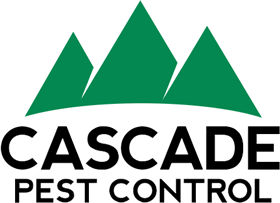Author: Kurt Treftz, Cascade Pest Control
Be it a rat or a mouse, most see a rodent and PANIC. This is a natural reaction, as both are bad news for the safety and health of your home or business. While their tell-tale signs and physicality appear similar, rat and mouse habits actually aren’t the same. This is important when it comes to treating one versus the other, as the rodent treatment approach will depend on the intruder.
Mouse and Rat Control Techniques
Identification
If you’re able to spot the intruding rodent, you’ll be able to tell it’s a rat or a mouse mainly by the size and color. Both roof and Norway rats are considerably larger and darker in color than house mice. Because of this, any gnawed holes or track marks will be larger for rats than they will be for mice.
This impacts what gaps and entry points need to be sealed. Rats can squeeze through anything ½ inch in diameter, whereas mice can get through anything ¼ inch or larger. Checking attics, crawl spaces, exterior drainpipes, roofing seals, and window or door jams for cracks or holes is an important step in regular rodent control.
Trap Setting
Laying traps for rats vs mice depends on which you’re dealing with as well. Rats are more cautious by nature than mice, and while both tend to travel on the same paths repeatedly, rats will get spooked by new blockages or items along their way. Try laying un-set traps along where you see tracks or filth first, and then graduate to set traps for rats. This allows time for the rat to observe and get comfortable with the trap along their path, and will lead to more successful rat control trappings in the future.
Mice on the other hand are very curious, and you’ll need to place a set trap right in their path to get them. Usually if they haven’t bitten after a few days, the trap is in the wrong place and will need to be relocated to better attract their attention.
Habits and Diet
Rats and mice tend to feed on different types of food as well. Mice stick with dried goods, grains and plants, whereas rats are less picky. Rats particularly enjoy meat and grains, but will forage for most anything. This can impact what you guard extra carefully in your cupboards, garbage, and pantry as well as what you consider leaving out on your counter (or pet food).
Both rats and mice are skilled climbers, and mice can jump pretty far as well, so be intentional about where and how you’re storing your food.
Rats in particular also need a decent amount of water per day to survive. This accounts for them burrowing into ground structures and foraging through outdoor or garage spots where water can pool. Especially in the greater Puget Sound region, check on your exterior rain barrels, near gutter drainage, or your hose set up for any leaks or signs of rat activity.
Cascade’s Rat Control
While pest control is in our name, rat control is also our game. Our technicians are trained on identifying rat and mouse related damage and filth, and are always transparent about our treatment methods. We proudly commit to eco-friendly procedures delivered according to your schedule, as pest and rodent control shouldn’t interfere with your health or daily routines.
From property inspection to follow-up prevention & exclusion, Cascade Pest Control is committed to quality and effective home and business rat control. Call 888-989-8979 to get started with us today!
